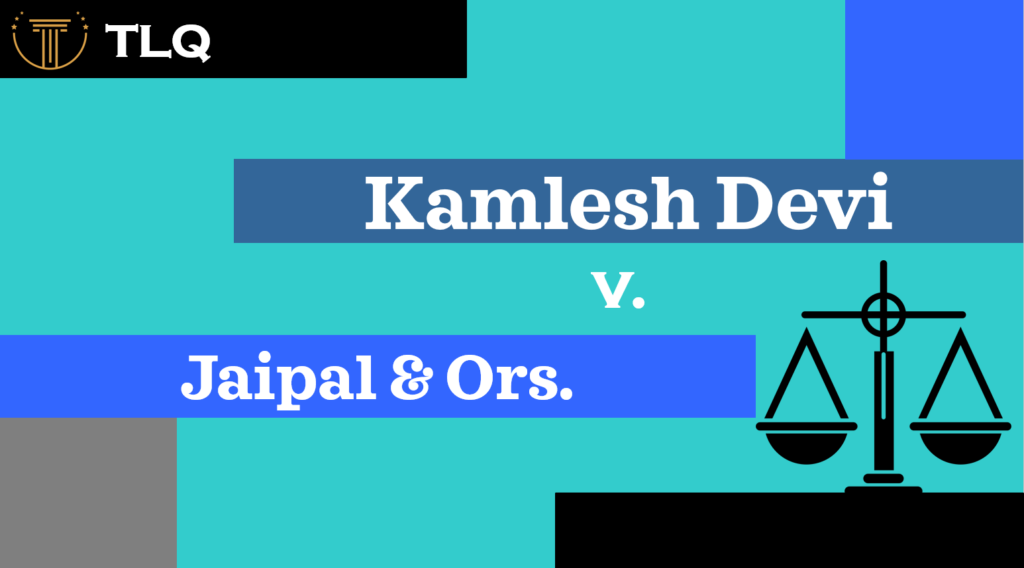Published On: 14th August, 2024
Authored By: Aman Kumar
Deshbandhu College
Abstract
Confidentiality is often touted as a key advantage of arbitration over traditional court litigation. The private nature of arbitration proceedings and the ability to keep sensitive information out of the public eye are major draws for many parties. However, this benefit varies across jurisdictions and institutional rules when dealing with confidentiality in arbitration. The article provides an overview of considerations in the law and practical implications regarding the aspect of confidentiality in arbitration. It deals with the meaning and importance of confidentiality, the universal need for its importance, the evolution of the provisions concerning confidentiality, impact, and trends with regard to India, perspectives in confidentiality settings, case studies, and lastly, drawing conclusions with recommendations for effective protection of confidentiality.
Introduction
This view regards commercial arbitration as a private mechanism compared to court proceedings or mechanisms, which are perceived as public. On various occasions, parties choose to arbitrate a situation instead of initiating a legal suit because they prefer the process and the results to remain confined for the simple reason that sensitive information will not leak to the public. The fact of the matter is that the principle of confidentiality is generally considered one of the major principles and advantages of arbitration [1].
Confidentiality in arbitration is not automatic; it is also not universal. The degree to which arbitration proceedings and related information are kept confidential varies greatly from one country’s judicial system to another and from one institution’s arbitration rules to another [2]. While in some countries this requirement is spelled out through legislative provisions, in others it has to be arrived at through implication of the nature of duty or contract [3]. Even where there is a legal recognition of confidentiality, there tend to be exceptions and limitations that may do less than could reasonably be expected to present their effectiveness.
Importance of Confidentiality in Arbitration
In simple words, the concept of confidentiality in arbitration can be translated to impose an obligation on the parties to an arbitration, the arbitral tribunal, and any other participants to maintain the information that arises in the course of the arbitral proceedings in both a private and not to disclose it or make use of it to any party or a third party [4]. Confidentiality applies, in reality, with the very existence of the arbitration, pleadings, and evidence submitted during arbitral proceedings, deliberations of the tribunal, and the final award.
In other words, the principal reasons for the need for confidentiality in arbitration can be written down in several ways:
- Protection of Sensitive Information: Most conflicts relating to trade secrets, pricing, financial information, strategic plans, and similarly commercially sensitive information are usually resolved via arbitration. The information is necessary and should not cause a competitive disadvantage or harm to the reputation of any of the parties involved [5].
- Lack of Publicity: The parties then go to arbitration either because of the private nature of the proceedings or to spare themselves the adverse publicity that could be generated out of the dispute. The possibility that it can be kept confidential enables parties to resolve their issues privately without any peril of destructive media coverage or public scrutiny.
- Preservation of Ongoing Relationships: In most commercial contexts, the parties in dispute have an ongoing business relationship they may want to preserve, or at least not offend, for reasons of gaining goodwill for other future dealings. It helps in preserving these relationships, not airing dirty linen in public, in terms of cases of grievance and allegations.
- Efficiency and Flexibility: The private nature of arbitration and thus the possibility of confidentiality, in particular, makes for a more efficient and flexible process of dispute resolution. The parties are free to mold the conduct of proceedings as per their requirements and without the bondage of open court procedures.
Universal Need to have Confidentiality in Arbitration
The need to have confidentiality in arbitration is not a localized or regional phenomenon. It is a universal factor, impelled by some common factors:
- Commercial Sensitivity: Many companies in different sectors use arbitration for the resolution of disputes relating to sensitive commercial information, including trade secrets, pricing strategies, and financial data. Keeping such types of information confidential is very important to be at par with the competitive positions of parties.
- Reputational Concerns: Disputants, notably high-profile companies or individuals, may not find it comfortable to have their disputes in public, where it could attract negative publicity and, consequently, result in the tainting of their reputation. This confidentiality, thus, allows disputes to be resolved discreetly, out of the public eye.
- Preservation of Relationships: Many commercial disputes concern parties with an ongoing relationship or who would like to provide enough goodwill for further business interactions. In this regard, confidentiality shields such relationships from a public airing of their grievances and allegations.
- Efficiency and Flexibility: Arbitration is a private process; there is always the possibility of confidentiality. It opens up possibilities for an efficient and flexible process for resolving the dispute. The procedure may be designed to suit the parties’ particular needs without the straitjacket of public court procedures.
- Enforcement Considerations: In international commercial arbitration, the part played by confidentiality assumes a different dimension in the enforcement of awards. Parties might more willingly comply with a confidential award than with one that is publicly available and could, thus, be used against the other side in other proceedings.
Development of Confidentiality Provisions in Arbitration
The legal treatment of confidentiality in arbitration has evolved over time, with varying approaches adopted by different jurisdictions and arbitral institutions.
Early Approaches
In the early days of modern commercial arbitration, it was often assumed that the private nature of the process implied a duty of confidentiality. was predicated on the view that, by its very nature, arbitration is a private dispute resolution mechanism and that the parties have a reasonable expectation of privacy and confidentiality.
Statutory Provisions
Over time, some jurisdictions began to address confidentiality in arbitration through specific statutory provisions. For example, the English Arbitration Act 1996 does not contain an express provision on confidentiality, but courts have recognized a common law duty of confidentiality in certain circumstances. On the other hand, some countries like Singapore and Hong Kong specifically spell out the confidentiality of arbitration proceedings through their arbitration laws.
Institutional Rules
Arbitral institutions are no exception, as they have contributed by coming up with rules that provide for the confidentiality of arbitral proceedings. Most of the major institutions, such as the ICC, LCIA, AAA, and others, have incorporated clauses relating to confidentiality into their arbitration rules. Still, as to their scope and enforceability, in some cases, they may require supplementation by contractual agreements of the parties.
Judicial Interpretations
Courts have also played their part in developing confidentiality in arbitration through interpretation and judgments. In some jurisdictions, a general duty of confidentiality in an arbitration has been recognized either as an implied term of the arbitration agreement or as a matter of public policy. However, the extent and the limits of this duty have remained debatable and fluctuated with judicial opinion.
Impact and Trends in India
The issue of confidentiality of arbitration has been earning a great deal of attention in India in the recent past. There have been some recent developments on the legislative and judicial front.
Legislative Developments
Though the Arbitration and Conciliation Act, 1996 governs the law relating to arbitration in India, it did not contain any express provisions conferring confidentiality originally. However, in 2019, Section 42A was inserted, which states, “The arbitrator, the arbitral institution, and the parties to the arbitration agreement shall maintain the confidentiality of all the arbitral proceedings except the award, whose disclosure is necessary for the implementation and enforcement of that award.”.
Of course, this legislation has been widely welcomed as a positive step in giving statutory force to the confidentiality of arbitration in India.
Judicial Trends
The Indian courts have played a very significant role in laying down an understanding of confidentiality and its application to arbitration. Through several landmark decisions, the courts have reiterated that protection should be afforded to sensitive information of the parties that have come out during arbitral proceedings.
For instance, in the matter of *Centrotrade Minerals & Metal Inc. v. Hindustan Copper Ltd.*, it was expressed at the Supreme Court level that the arbitration process is private and the confidentiality of the proceedings must be ensured. Likewise, in the case *Emkay Global Financial Services Ltd. v. Girdhar Sondhi*, at the instance of the Delhi High Court, the confidentiality of an award of an arbitration process was also upheld by issuing a decree that such information shall not be revealed on grounds of public policy.
These judicial dicta taken together with the new statutory provisions have developed increased importance to confidentiality as a feature of Indian arbitration. Parties and arbitrators in India are, therefore, increasingly alive to ensuring arbitral proceedings and other related information are confidential.
Opinion about an Arbitration Privacy
The issue of arbitration confidentiality has up to now been continuously debatable and has had divergent views from scholars of law, practitioners, and policymakers. A typical argument is that there must be an establishment of absolute confidentiality.
Some proponents argue that confidentiality should be inherent and absolute in arbitration because it is at the very nature, center, and core, making the process private and safeguarded against sensitive information. They hold that this very possibility of keeping confidentiality is one of the main reasons parties opt for arbitration instead of pursuing protection through some kind of court and that, therefore, exceptions or limitations to confidentiality undermine the very reason for opting for arbitration and its fundamental advantages.
The Practical Limits of Confidentiality
On the other hand, those against arbitration confidentiality argue that the same, in reality, is much more complex and nuanced. It is posited that the level of confidentiality in the arbitration will, in most cases, be constrained by many factors that include the applicable legal framework, the specific arbitration rules in effect, and the type of dispute. Confidentiality can also be breached in cases where judicial assistance in procedure or enforcement of an award is required.
The Balancing Act
The middle way is a position that takes into consideration the place of confidentiality in arbitration but also its practical limitations and the need to weigh this interest against others. For instance, proponents of this view would say that parties should be ambitious to provide in their arbitration agreements comprehensive confidentiality clauses, and arbitral institutions and tribunals should take a more active role in enforcing and protecting confidentiality. At the same time, they realize that sometimes the public interest or other legal considerations should overrule the parties’ will for confidentiality.
Case Studies
Case Study 1: Breach of Confidentiality
In the *Chartered Institute of Arbitrators v. B & Ors*, the Chartered Institute of Arbitrators (CIArb) had applied for access to documents concerning the appointment of an arbitrator. The CIArb had sought the same in aid of its disciplinary proceedings against the said arbitrator. The English High Court had acceded to the demand of the CIArb, much against the claims of parties for compulsory confidentiality of the material. The case exemplifies how other legal considerations, like regulatory oversight and disciplinary proceedings, might confront patient confidentiality.
Case Study 2: Maintaining Confidentiality
On the other hand, the case of *Emmott v. Michael Wilson & Partners Ltd.* shows the fact that confidentiality is well observed in arbitration. In the case, the English Court of Appeal denied disclosure in connection with the arbitration in other court proceedings and, in the process, confirmed the confidentiality of proceedings in arbitration. The court actually went further to respect the reasonable expectation of parties in respect of confidentiality with regard to the arbitral process.
These case studies indicate the fine balance that may be struck between the parties’ desire for confidentiality and the competing legal and public policy considerations that may be brought forth in given situations. They underline the message of careful drafting of confidentiality provisions and that an issue such as that of confidentiality in arbitration requires subtlety.
Conclusion
Confidentiality is of an intricate, multi-dimensional nature in an arbitration setting. While it is generally touted as one of the main advantages of the arbitral process over conventional public court proceedings, the point remains that the availability and enforceability of confidentiality are highly variable between different legal jurisdictions and institutional arbitration rules.
Any party that would wish arbitral proceedings to be cloaked with confidentiality should be very aggressive in including, within the limits of the law, as comprehensive a confidentiality provision as possible in the arbitration agreement. Both concurrently, these would make sure not only of the governing law and institution rules but also exceptions and modalities that might affect confidentiality.
The arbitral institutions and tribunals have also played a very important role in the maintenance and application of confidentiality, either with the implementation of rigorous protocols on confidentiality or the ability to manage effectively any issues on confidentiality that arise during the conduct of proceedings.
At the bottom, any genuinely protective regime of confidentiality in arbitration must take a balanced approach. it must respect the imperatives of confidentiality and, at the same time, regard the equal pressure of the need to give full and proper scope to all other legal considerations and concerns of public policy. Such a delicate balance would enable parties to fully exploit the confidentiality advantage of arbitration while at the same time assuring the integrity and enforceability of the process.
References
[1] Charles Russell Speechlys, ‘Confidentiality in Arbitration – A Cloak with Holes’ (2023) <https://www.charlesrussellspeechlys.com/en/insights/expert-insights/dispute-resolution/2023/confidentiality-in-arbitration—a-cloak-with-holes/> accessed 28 June 2024.
[2] Chartered Institute of Arbitrators, ‘Confidentiality in International IP Arbitration’ (2018) <https://globalarbitrationreview.com/guide/the-guide-ip-arbitration/second-edition/article/confidentiality-in-international-ip-arbitration> accessed 28 June 2024.
[3] Arbitration Blog, ‘Confidentiality in International Commercial Arbitration: Truth or Fiction?’ (2018) <https://arbitrationblog.kluwerarbitration.com/2018/09/23/confidentiality-in-international-commercial-arbitration-truth-or-fiction/> accessed 28 June 2024.
[4] CanLII, ‘Confidentiality in Arbitration: A Principled Approach’ (2016) <https://www.canlii.org/en/commentary/doc/2016CanLIIDocs135> accessed 28 June 2024.
[5] AIAC, ‘CONFIDENTIALITY IN ARBITRATION: Fundamental Virtue or Mere Illusion?’ (2013) <https://www.aiac.world/news/189/CONFIDENTIALITY-IN-ARBITRATION:-Fundamental-Virtue-or-Mere-Illusion> accessed 28 June 2024.




